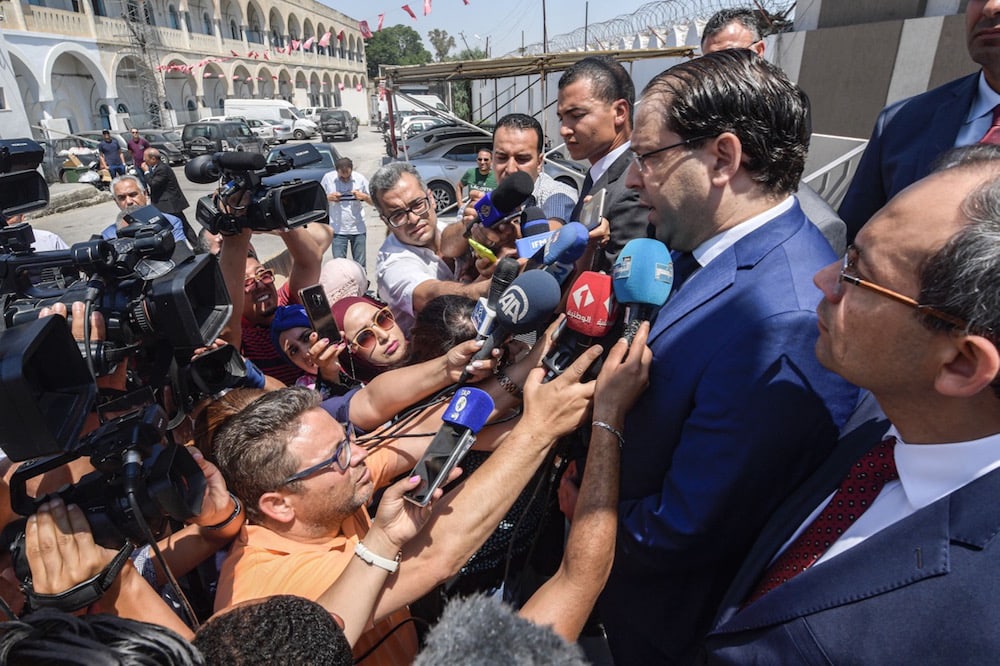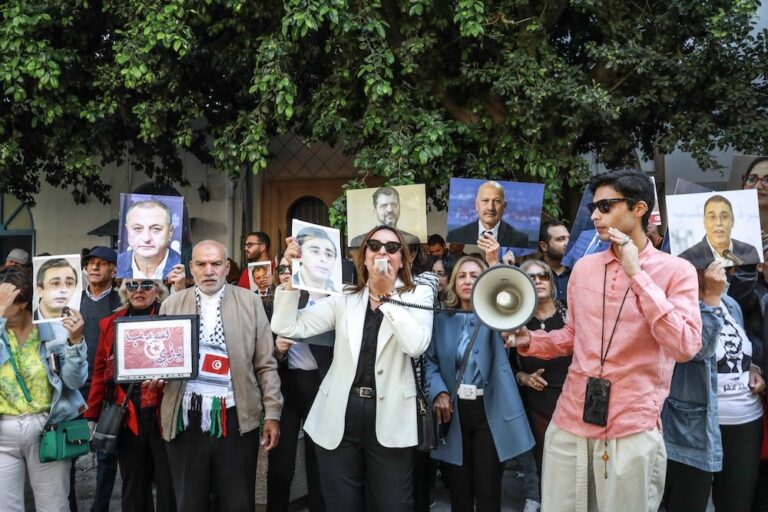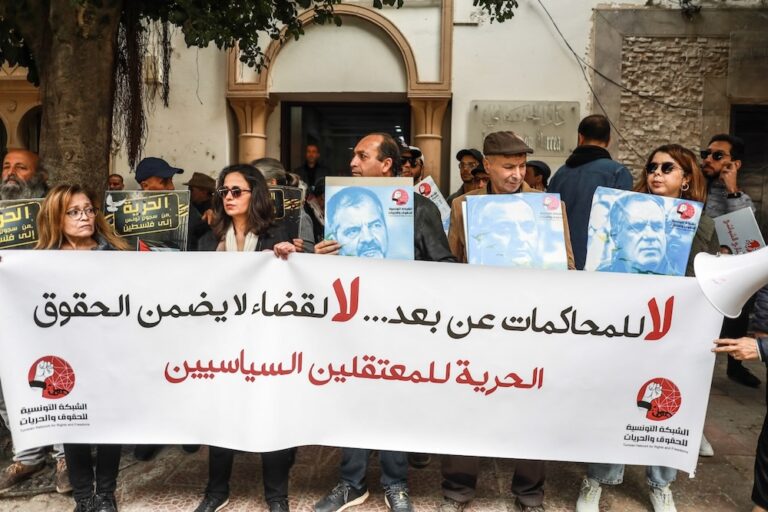The signatory associations warn against the dangers of this initiative to amend the law. It constitutes a new episode in a long-running soap opera, intended to make the media landscape more chaotic, and subject to domination by certain parties and political and financial pressure groups.
Tunis, 20 May 2020.
The undersigned associations condemn the chaotic actions within the Tunisian Parliament (The Assembly of the Representatives of the People, ARP) to amend decree-law No.2011-116 on freedom of audiovisual communication, which established a High Independent Authority for Audiovisual Communication (HAICA). In 2012, this decree-law was considered by the United Nations, UNESCO, the African Union and Tunisian and international human rights and professional organizations as “a significant step on the road to democracy.”
These actions undertaken by the parliamentary group of the Ennahdha Movement, following a legislative proposal by a group that zealously supports its agenda, aimed at amending Article 7 of the aforementioned decree-law in order to allow the ARP to pave the way for the election of new HAICA board members by an absolute parliamentary majority. From the point of view of the signatory associations, this is a violation of the Constitution, particularly Article 148. They consider these actions to be a blatant attempt to control HAICA – which is the only independent authority for audio-visual regulation in the Arab world – and to deprive it of autonomy in its decisions.
This parliamentary initiative was communicated in a letter addressed to the president of the ARP, Rached Ghannouchi, on 4 May 2020 by the president of the Al Karama Coalition, Seif Eddine Makhlouf, who is known for inciting hatred, violating the law, reviving political polarization, and insulting the founders of the Tunisian state, political opponents and critical journalists.
Article 148 of the Constitution states that HAICA shall perform its duties until the election of a new audio-visual broadcasting regulator, whose creation is stipulated by Article 127.
The signatory associations warn against the dangers of this initiative to amend the law. It constitutes a new episode in a long-running soap opera, intended to make the media landscape more chaotic, and subject to domination by certain parties and political and financial pressure groups. Furthermore, it opens the door to manipulation and misinformation, rejecting constitutional and legislative achievements made since 2011. These achievements include a guarantee of the right to freedom of expression and the press, and the independence of the audio-visual communications commission.
It is worth noting that this soap opera began just after the Ennahda movement formed the troika government at the end of 2011. Its episodes depicted many manoeuvres characterized by the determination to obstruct all serious attempts to reforming the media sector. Among these manoeuvres, the most dangerous are probably the appointment of heads of public media outlets and media outlets confiscated from the previous regime, in an arbitrary manner akin to that of authoritarian states, as well as the delay to application of decree laws No. 2011- 115 and 2011-116 for several months, in collaboration with owners of private newspapers, radio and television channels, particularly the co-founder of Nessma TV, Nabil Karoui.
These manoeuvres and attempts to dominate the media prompted protests and reactions from Tunisian and international human rights and professional organizations, including the first general strike in the media sector since the country’s independence in 1956. This general strike in 2012, which was led by Néjiba Hamrouni, then president of the National Union of Tunisian Journalists, paved the way for the implementation of decrees 115 and 116 and the announcement of the establishment of HAICA on 3 May 2013.
Therefore, the undersigned associations call upon the ARP to:
– Clarify the legal basis for the withdrawal of the legislative initiative on the freedom of audio-visual communication and the creation of the regulatory commission, which was presented by a group of parliamentarians in January 2018.
– Accelerate the creation of the Constitutional Court.
– Accelerate the establishment of the other constitutional commissions, whose legal texts have been promulgated, but for which the ARP has failed to elect board members. These commissions are: the Human Rights Commission, the Good Governance and Anti-Corruption Commission, the Sustainable Development and Future Generations’ Rights Commission. In all of these elections, the principle of parity should be respected.
Signatory associations:
– Association for the Promotion of the Right to Difference
– Civil Coalition for Individual Freedoms
– Committee for the Respect of Freedoms and Human Rights in Tunisia
– Free Sight Association
– General Syndicate of the Media
– Legal Agenda Tunis
– National Union of Tunisian Journalists
– Organization against Torture in Tunisia
– Organization 10-23 to support for the Democratic Transition Process.
– Perspectives el Amel Tounsi
– Tunis Center for Press Freedom
– Tunisian Association for the Defense of Academic Values
– Tunisian Association for the Defense of Individual Freedoms
– Tunisian Coalition for the Abolition of the Death Penalty
– Tunisian Women’s Association for Research on Development
– Vigilance Association for Democracy and the Civic State



